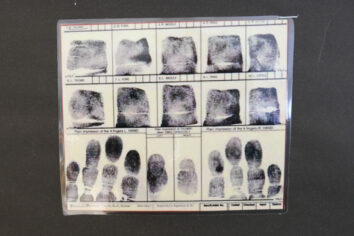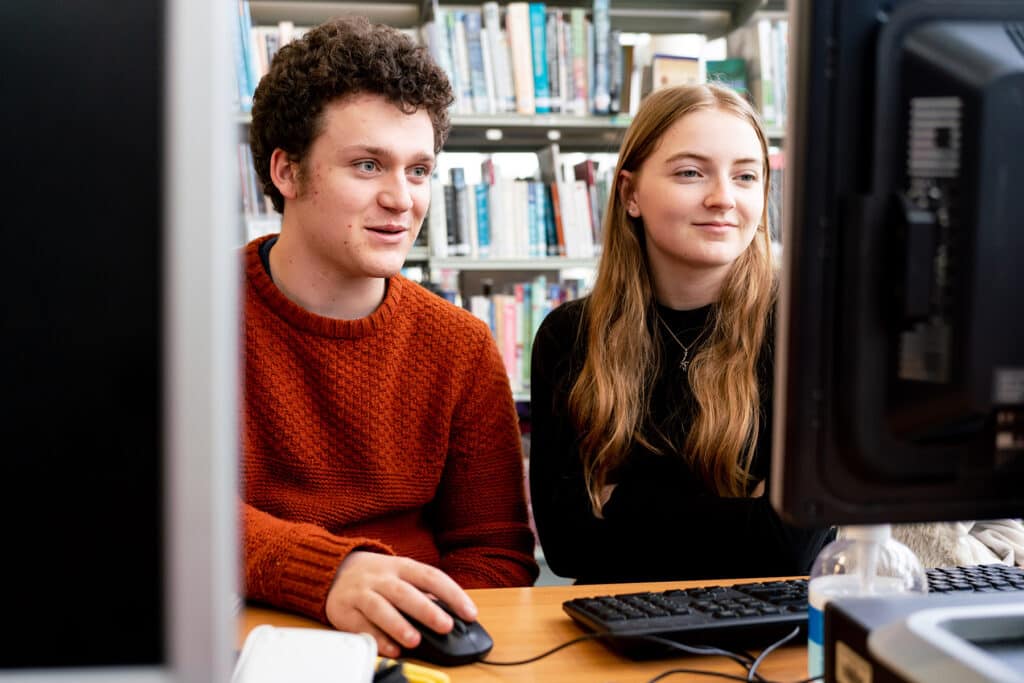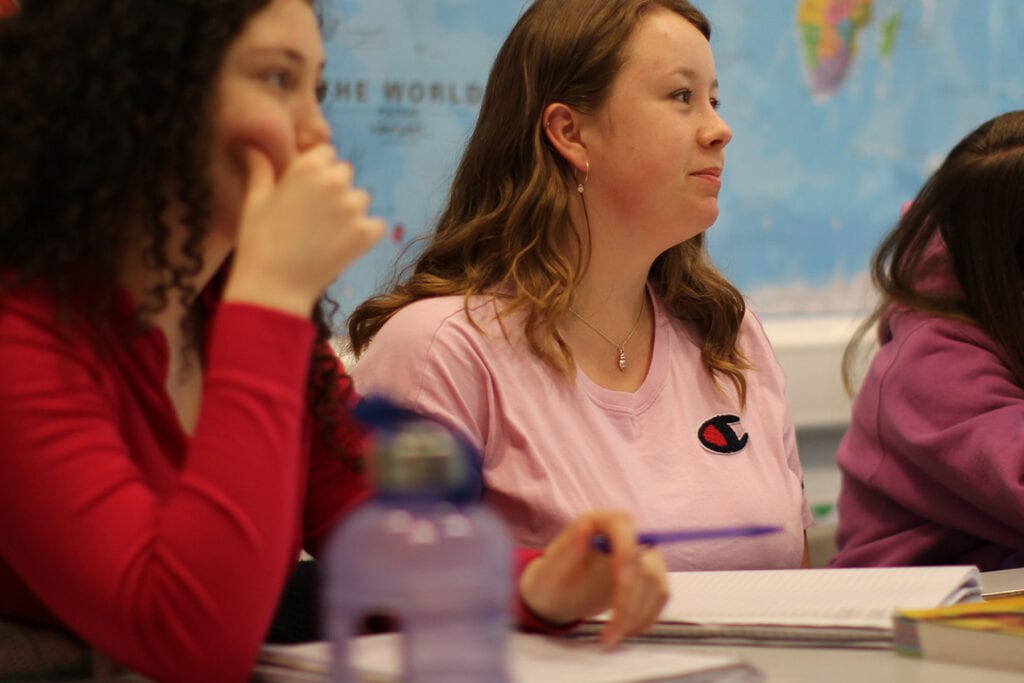New students starting in September: You can find more information about Induction days and submitting your GCSE results in our Start of Year Guide.
WHY CHOOSE THIS COURSE?
A Level Law is a contemporary and thought-provoking subject, highly regarded by employers and universities, which relates to real-life situations and complements many other subjects well. You will develop a thorough understanding of the English Legal System, key aspects of criminal and civil law, as well as have the opportunity to participate in trips and visits to the Houses of Parliament, the Supreme Court, and the Royal Court of Justice, as well as further afield to the United Nations in New York. Law is a natural partner to the study of English language/literature and History at A Level, but the syllabus content also connects well with subjects such as Politics, Psychology, Business and Sociology.
Apply for this course
Start date: 08/09/2025
TOP COURSE HIGHLIGHTS
Real life case studies
Specialist dedicated lecturers
Small class sizes
Engage in debate
Learn skills of persuasion

Trips
Visit the Houses of Parliament, the Supreme Court, and the Royal Court of Justice, as well as further afield to the United Nations in New York. Locally, all students will benefit from attending Truro Crown Court to witness the criminal process in action.

The Bar Mock Trial Competition
You will have the opportunity to join and hone your debating and advocacy skills by participating in the National Bar Mock Trial Competition and follow in the footsteps of our previous regional champions!

Guest speakers
Hear from guest speakers including the police, barristers, judges and even victims of crime. Taught by an experienced and well qualified team of law lecturers, who have also worked professionally in law.
WHAT WILL I LEARN?
Year 1: You will examine how the English legal system works. This will provide you with an understanding of the different kinds of law we have, how these laws are made, applied, and updated as well as an appreciation of the role played by key personnel, both professional and lay members, in promoting justice.
Tort law focusses on the resolution of disputes between private individuals, such as negligent actions, trespass, and nuisance claims. In addition, students will examine the various remedies available, including compensation for personal injury.
We also consider some introductory aspects of criminal law, such as non-fatal offences against the person as well as the potential for liability within the civil law.
Year 2: In second year, we will build on the information gained during the first year by analysing in more depth key aspects of criminal and civil law, with the addition of analysing a human rights perspective.
In our study of criminal law, we will examine the key elements which can lead to a charge of murder or manslaughter, theft, robbery, or burglary. We will also consider defences such as self-defence and automatism which may assist a defendant to avoid liability along with special defences such as diminished responsibility and loss of control which can reduce a murder charge to that of voluntary manslaughter.
Human Rights will focus on an evaluation of the level of protection afforded to human rights by the European Convention on Human Rights and the Human Rights Act 1998. We will consider fundamental rights such as our right to liberty, right to a fair trial, right to privacy and right to freedom of speech and, at the same time, will analyse the potential impact of, for example, police powers and surveillance operations in diluting these rights.
WHERE WILL IT TAKE ME?
A Level Law is highly regarded by most universities and can be a good pathway to degree courses in many subject areas, including law, criminology, business, humanities, and social sciences. It can lead you to many satisfying and challenging careers, including becoming a barrister or solicitor, working in business and finance, politics, human resources, education and journalism.
Assessment Arrangements
The A Level qualification is achieved following three examinations using the Eduqas awarding body:
Component 1 (25% of the qualification and 1.5 hours in duration) – examines law making and the English legal system via short answer questions, scenarios, and evaluative essays.
Component 2 (37.5% of the qualification and 2.25 hours in duration) – assessment is based on applying the law to a scenario on each of the three subject areas of crime, tort, and human rights.
Component 3 (37.5% of the qualification and 2.25 hours in duration) – assessment is based on evaluating the law on each of the three subject areas of crime, tort, and human rights.
Your achievement in the subject will be dependent upon adopting a positive work ethic based upon excellent attendance, punctuality, and effort. This will include taking the time at home to fully consolidate the information discussed in class and to make your own revision notes.
You will learn in a supportive, friendly atmosphere, using a variety of assessment methods.
You will be assessed regularly at the end of a topic. The work will be completed in class, under timed conditions, to practice examination technique. Detailed feedback will be provided on each piece of work and questions are actively encouraged.
You will undertake mock examinations in advance of your final examinations.
You will review your progress regularly with your tutor in 1:1 sessions during the course.
ENTRY REQUIREMENTS
For all A Levels a minimum of five GCSEs at Grade 4 or above in appropriate subjects, to include English Language or Literature and/or Maths at Grade 5 or above is required.
However a high standard of literacy and good communication skills are key tools in the study of Law and therefore we require Grade 6 in GCSE English Language/Literature or a Humanities subject in order to be accepted on the course.
Information & Support
It is very important for students to take a wider interest in current affairs as it helps to make their course of study relevant. Therefore, it is crucial to read widely and to follow the news on a regular basis. Any work experience within a legal context, e.g., law firm, courts, CPS, CAB etc will be immensely valuable, both to aid understanding and as a point of reference in university applications. A wide variety of electronic resource material is available in addition to a well-stocked Learning Centre.
Meet the staff, tour the campus and find out about life as a student at one of the best colleges in the country.








